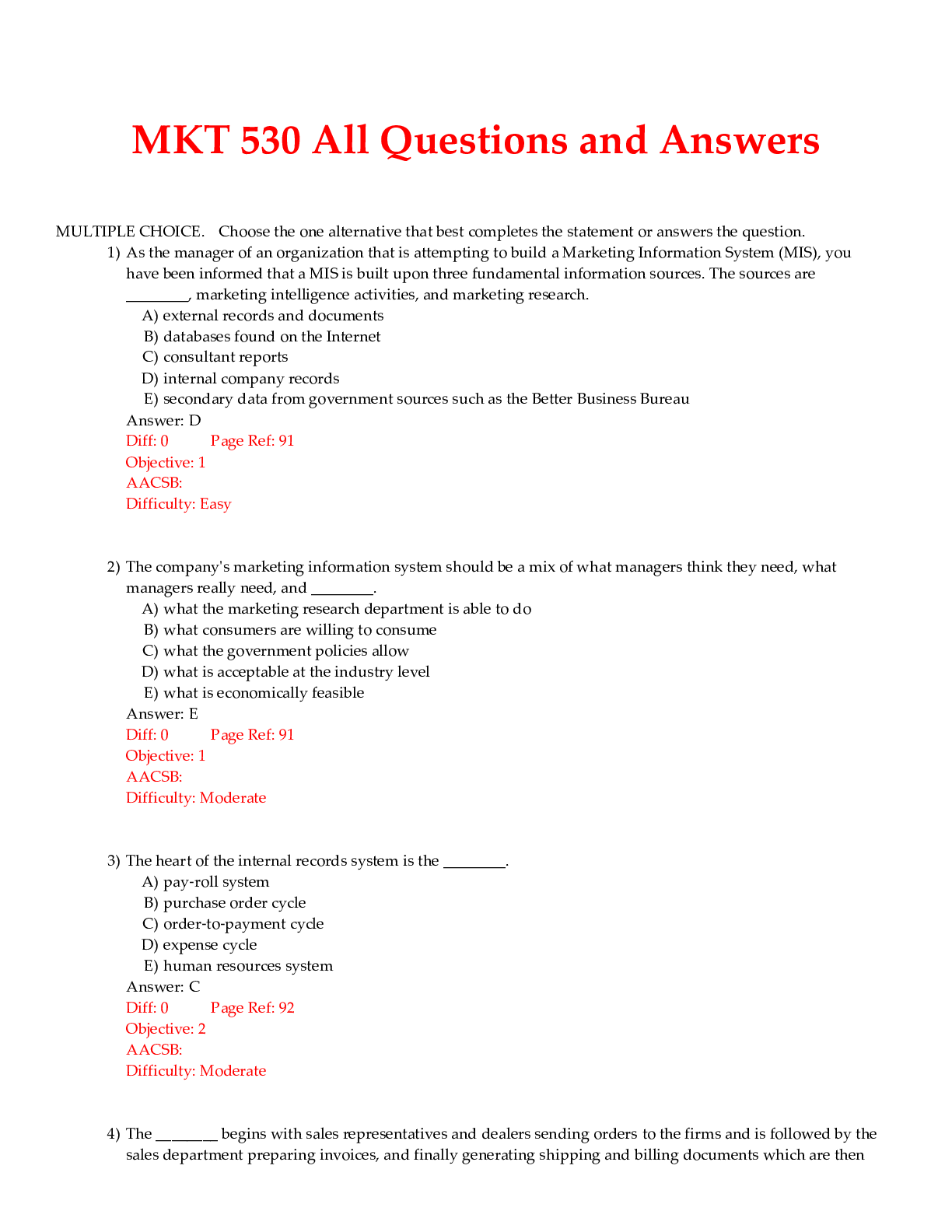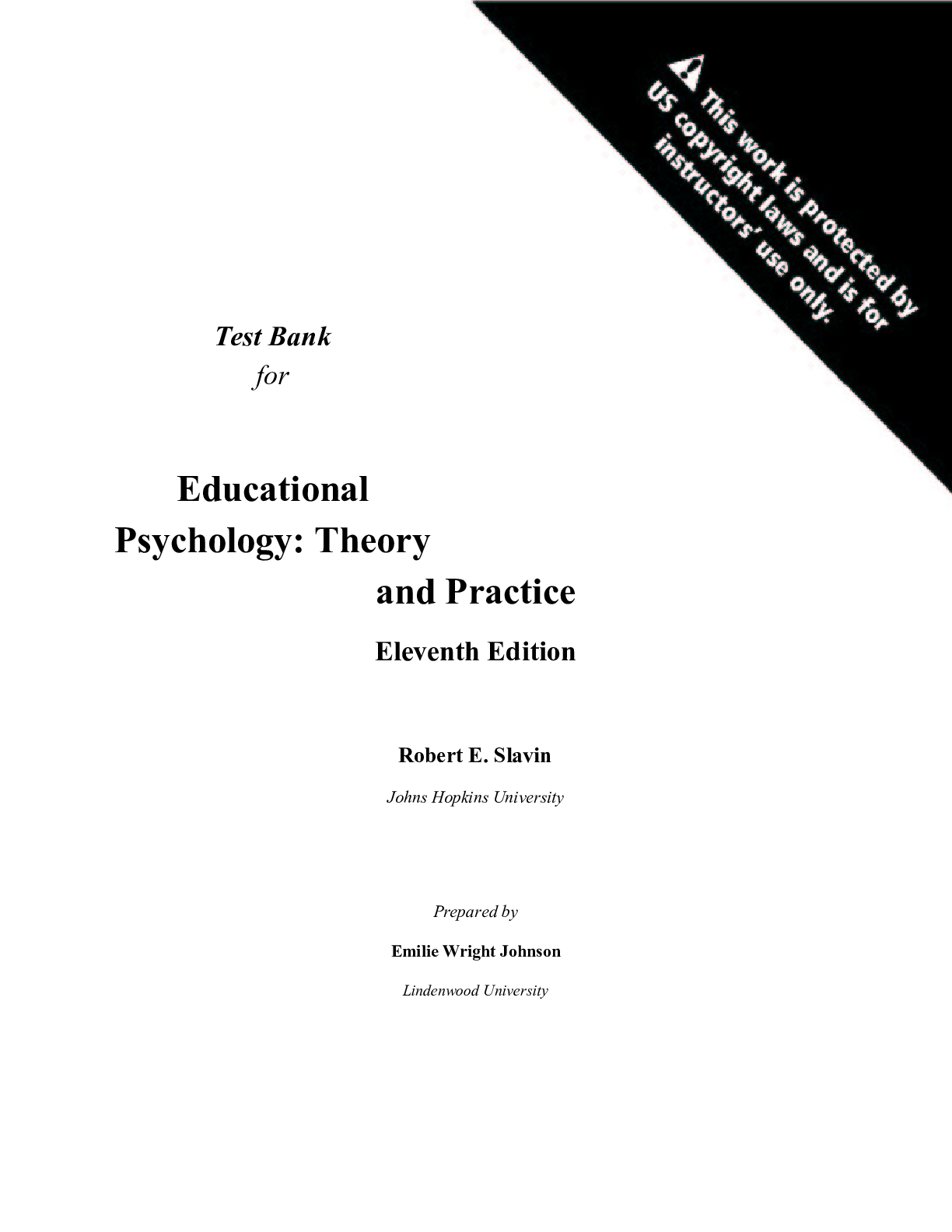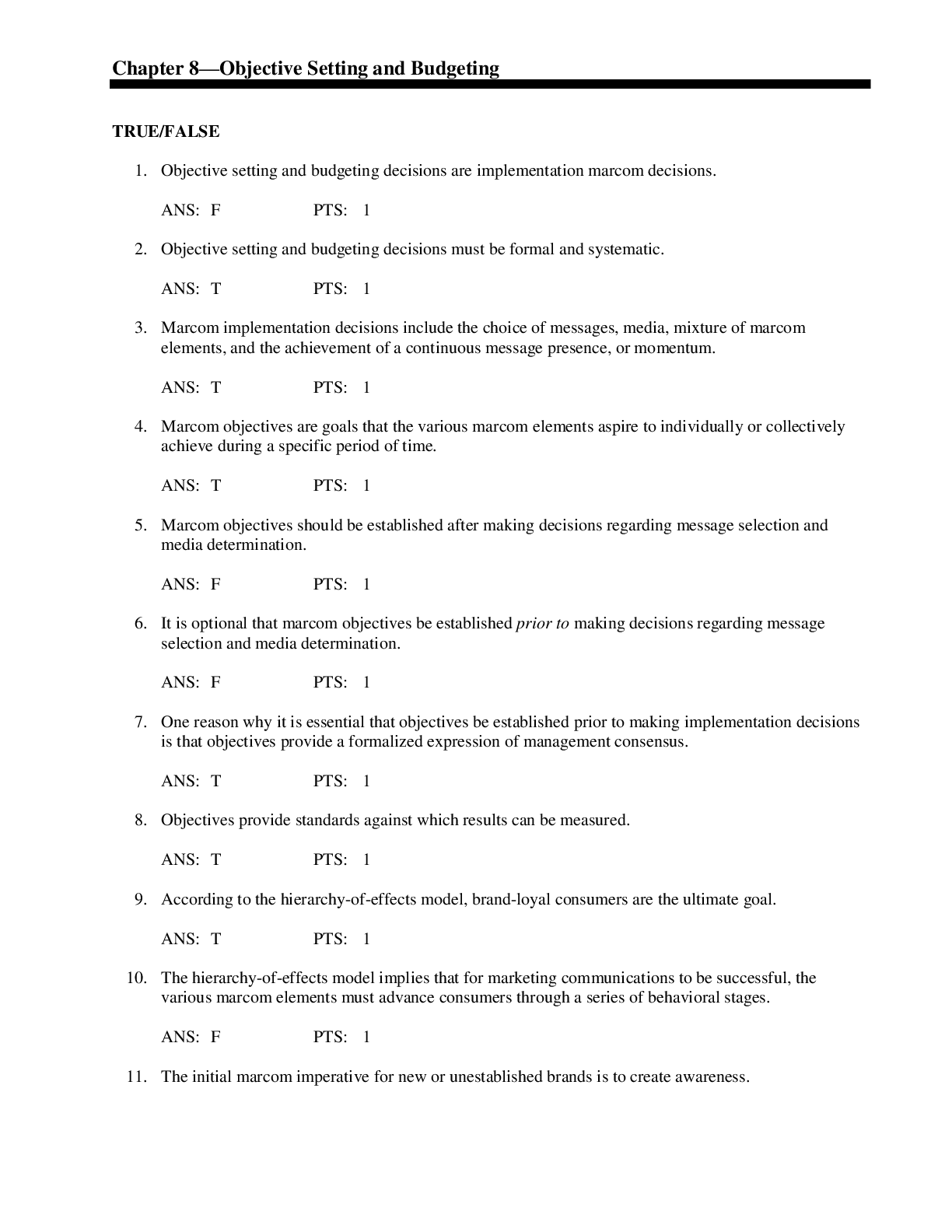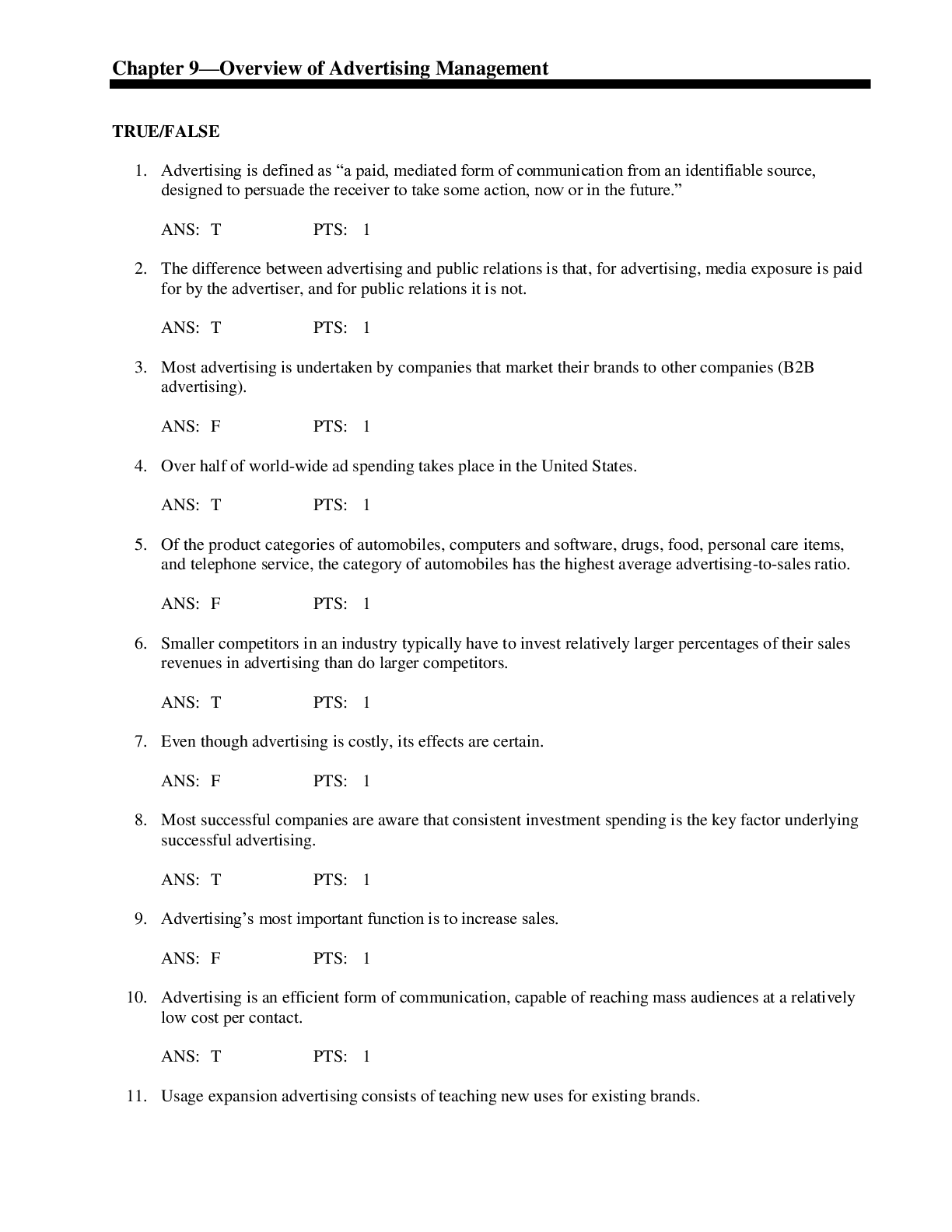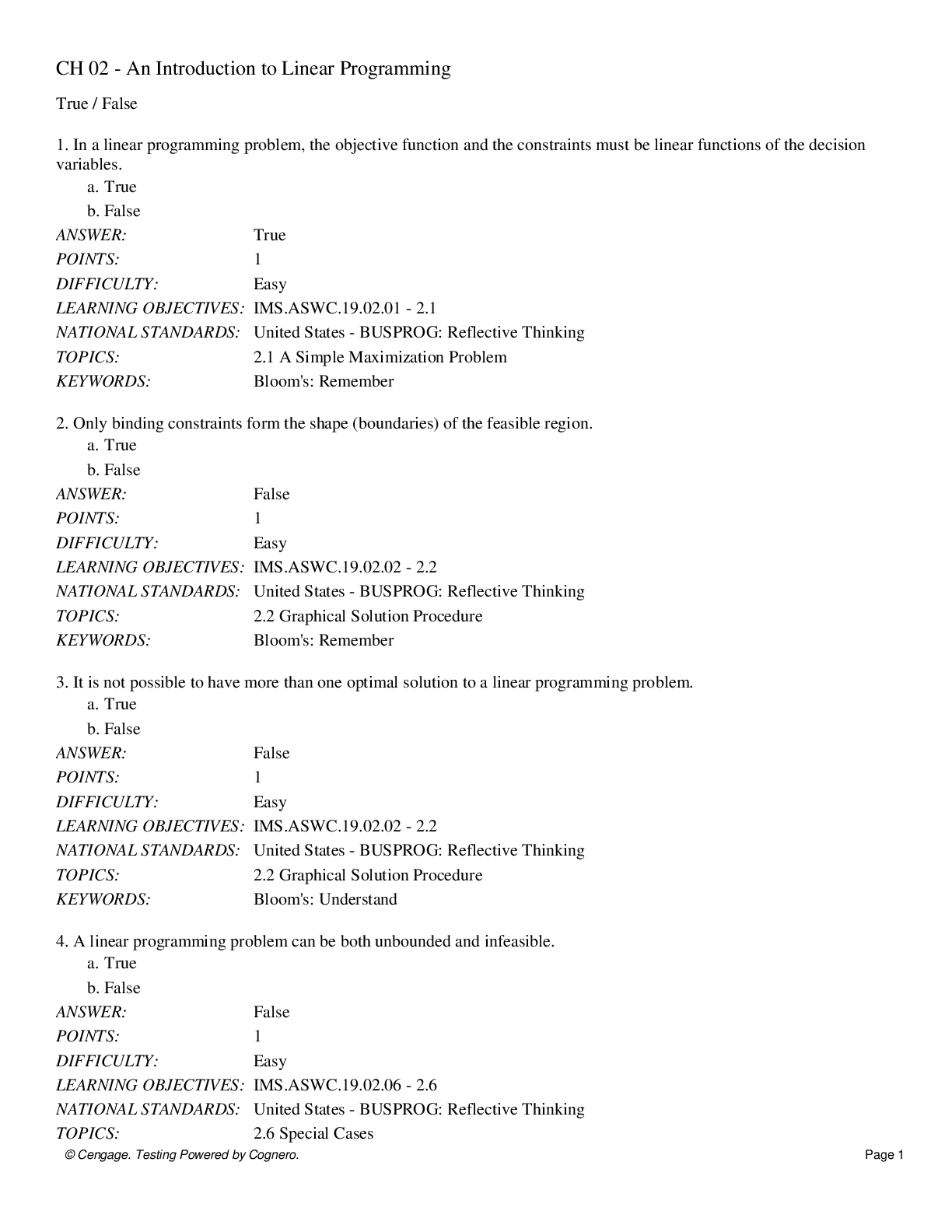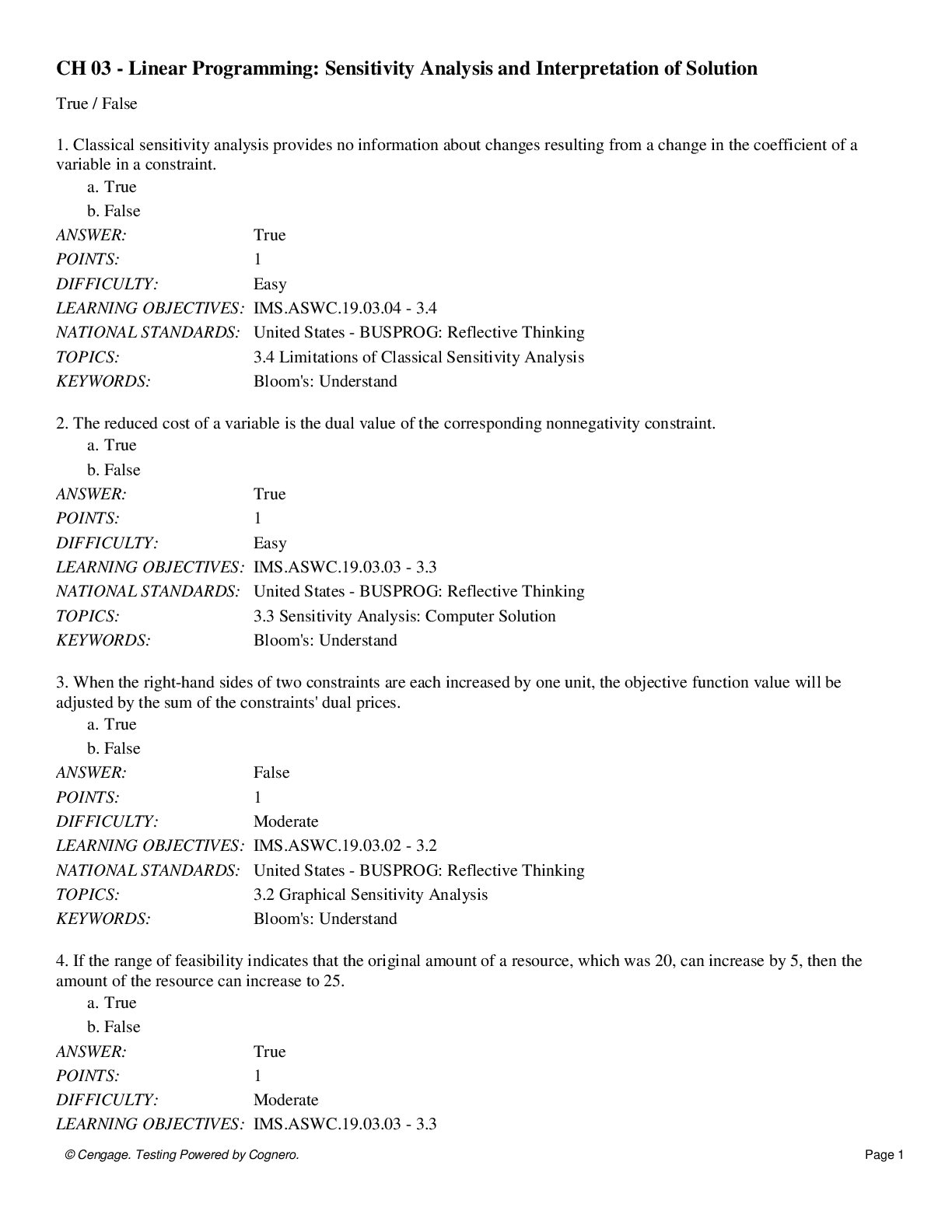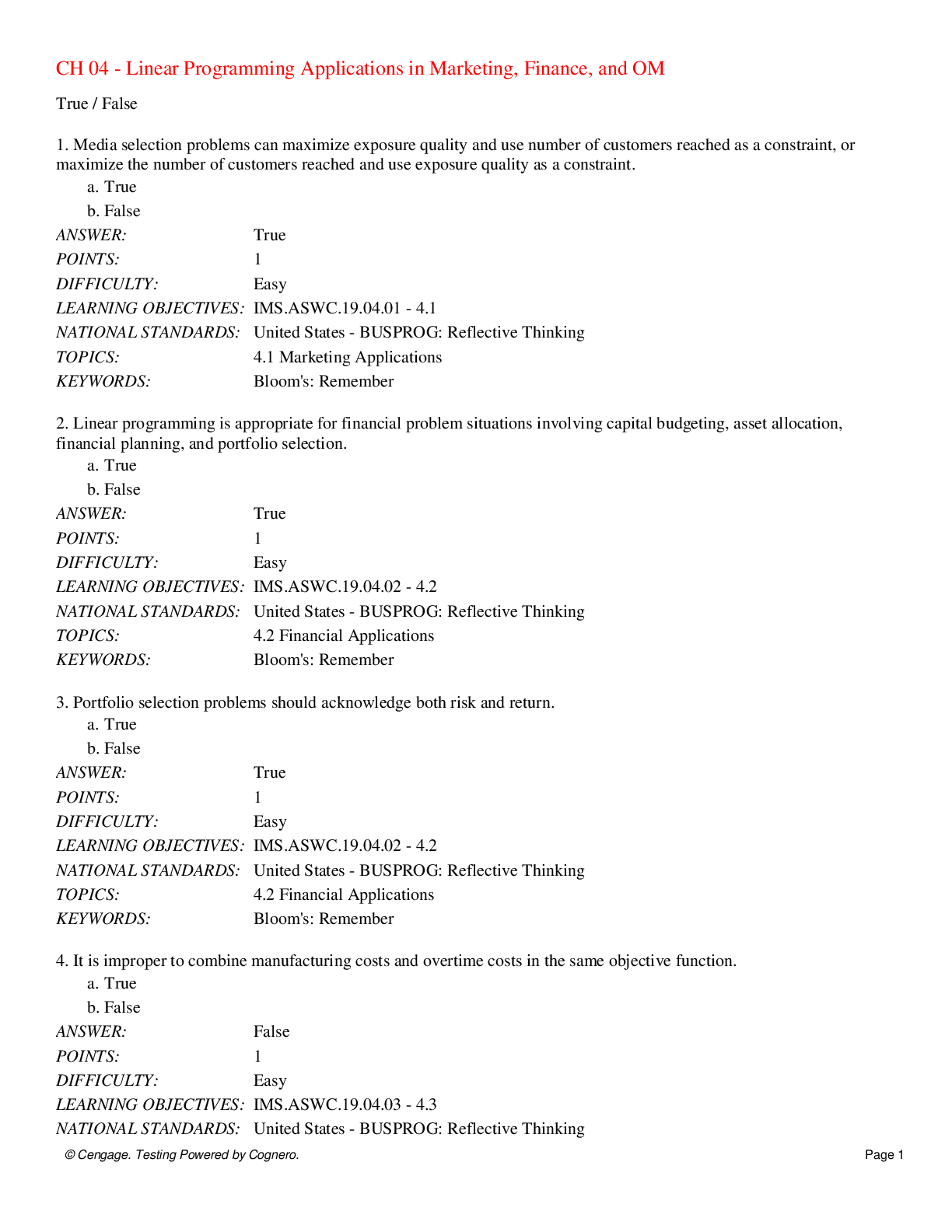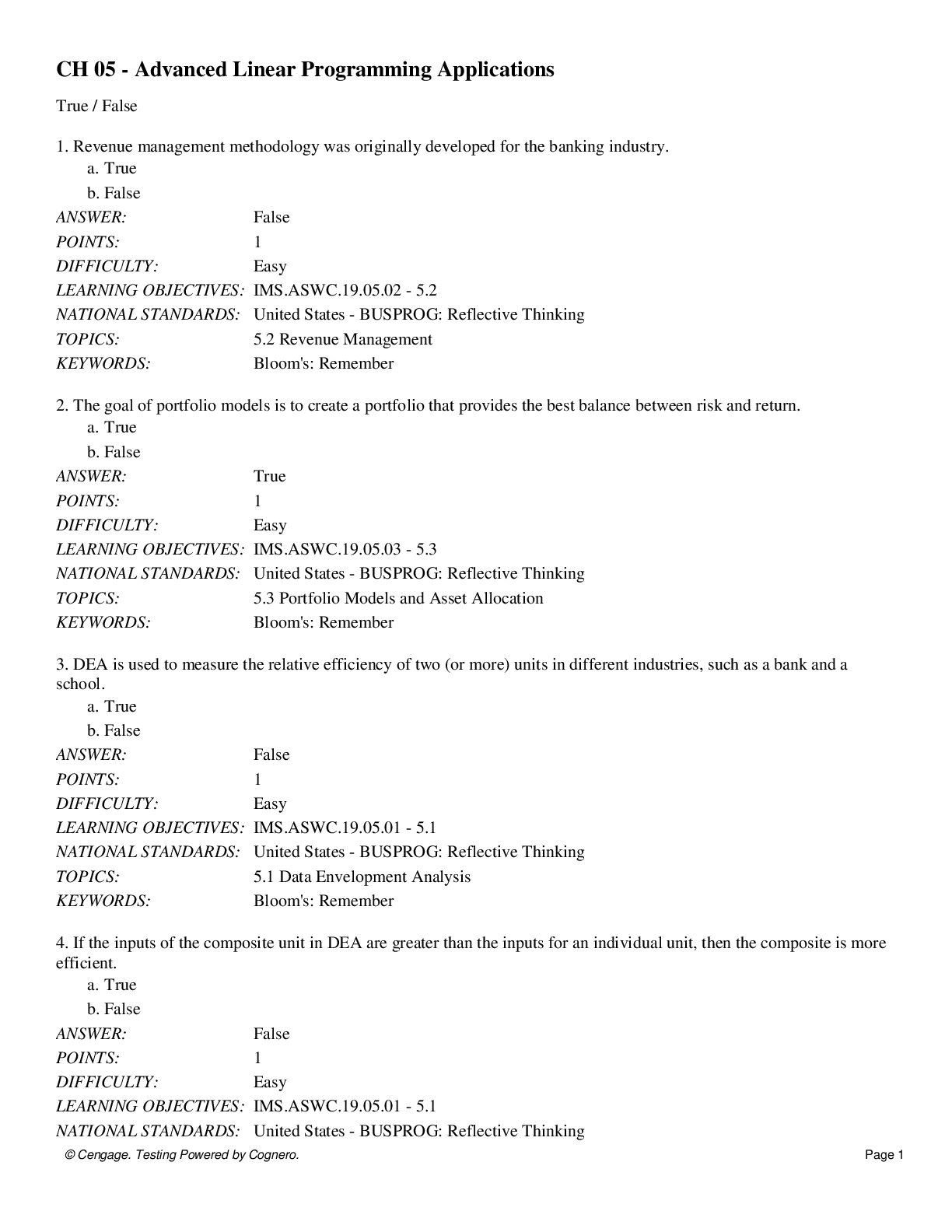History > QUESTIONS & ANSWERS > The Enlightenment Questions and Answers Already Passed (All)
The Enlightenment Questions and Answers Already Passed
Document Content and Description Below
The Enlightenment Questions and Answers Already Passed The Enlightenment European intellectual movement of the late 17th and 18th centuries emphasizing reason and individualism rather than traditi... on. Social Contract The agreement by which people define and limit their individual rights thus creating an organised society or government Reason Enlightened thinkers believed truth could be discovered through reason or logical thinking. Scientific Revolution Group of scholars mid 1500s published their works that challenged the ideas of the ancient thinkers and the church based on logic and reason. This was the start of the Scientific Revolution Natural Rights Life, Liberty, and Property. Natural Law A body of unchanging moral principles regarded as a basis for all human conduct. Principal Ideas of the Enlightenment •Rationalism: Belief that truth can be arrived at only by reason (rational, logical thinking) • Cause and Effect: Belief that everything has a cause and an effect and that these can be discovered through observation and experiment • Natural Law: Belief that the universe is guided by simple laws preordained by God, such as the law of gravitation. Denial of the possibility of miracles, which contradicts these natural laws • Progress: Belief that society and individuals can be improved and progress toward perfection. Denial of the medieval view that humanity is in a state of decline from a golden age of the distant past (identified by medieval thinkers with the classical era of Greece and Rome) • Freedom: Belief that individuals should be free to make up their own minds and form their own beliefs without being restricted by superstition, religious dogma, or autocratic government • Happiness: Belief that a morally good life is a happy life. Denial of the view of the medieval Christian Church that people should endure hardship on Earth in the hope of reward after death Thomas Hobbes Believed in Social Contracts, he believed that all humans are wicked and cruel. Social Contract is when people give up their rights so that Law and Order can happen, he believe that an absolute monarch is the best. John Locke Believed that all people are born free, and that every human being has the three Natural Rights; Life, Liberty, and Property Philosophes They were the intellectuals of the 18th century enlightenment. Five Beliefs of the Philosophes 1. Reason, 2. Nature, 3. Happiness, 4. Progress, 5. Liberty Voltaire Fought for pure liberty for everyone, freedom was his goal, tolerance and freedom of religion. 00:0201:42 Beccaria He tried to proceed to the abolishment of torture. Montesquieu A French political philosopher who advocated the separation of executive and legislative and judicial powers (1689-1755). Rousseau Believed that all noble names should be abolish to earn equal rights. Wollstonecraft She fought for Women rights and equality, and that women should be able to go to school. Legacy of the Enlightenment The Enlightenment paved the way for the various revolutions such as the French and the American, both of which had a significant impact on modern history. Salons Wealthy women who owed big mansions, and hosted the meeting of the intellectuals to discuss about governmental systems. Denis Diderot The inventor of the Encyclopedia. Spread of the Enlightenment The Enlightenment spread into different fields of culture, for example: Art and Music was influenced by The Enlightenment, making a new type of art called "Neoclassic" and started to make more calmer music which is know today as "Classical" music. While everything in back then was complex and busy, the Enlighten Arts became calmer and stable. Enlightened Despots Are monarchs that were converted by the Enlightenment with their ideas and believes. Catherine II of Russia, she drafted a constitution with rules the Enlightenment wanted, but it was never used. Reason Enlightened thinkers believed truth could be discovered through reason or logical thinking Nature The philosophes believed that what was natural was also good and reasonable. Happiness The philosophes rejected the medieval notion that people should find joy in the hereafter an urged people to seek well-being on earth. Progress The philosophes stressed that society and humankind could improve Liberty The philosophes called for the liberties that the English people had won in their Glorious Revolution and Bill of Rights. [Show More]
Last updated: 1 year ago
Preview 1 out of 5 pages
.png)
Buy this document to get the full access instantly
Instant Download Access after purchase
Add to cartInstant download
We Accept:

Also available in bundle (1)
.png)
The Enlightenment Bundled Exams Questions and Answers 100% Pass
The Enlightenment Bundled Exams Questions and Answers 100% Pass
By Nutmegs 1 year ago
$18
14
Reviews( 0 )
$8.00
Document information
Connected school, study & course
About the document
Uploaded On
Feb 12, 2023
Number of pages
5
Written in
Additional information
This document has been written for:
Uploaded
Feb 12, 2023
Downloads
0
Views
79

.png)
.png)
.png)
.png)
.png)
.png)
.png)
.png)
.png)
.png)
.png)

